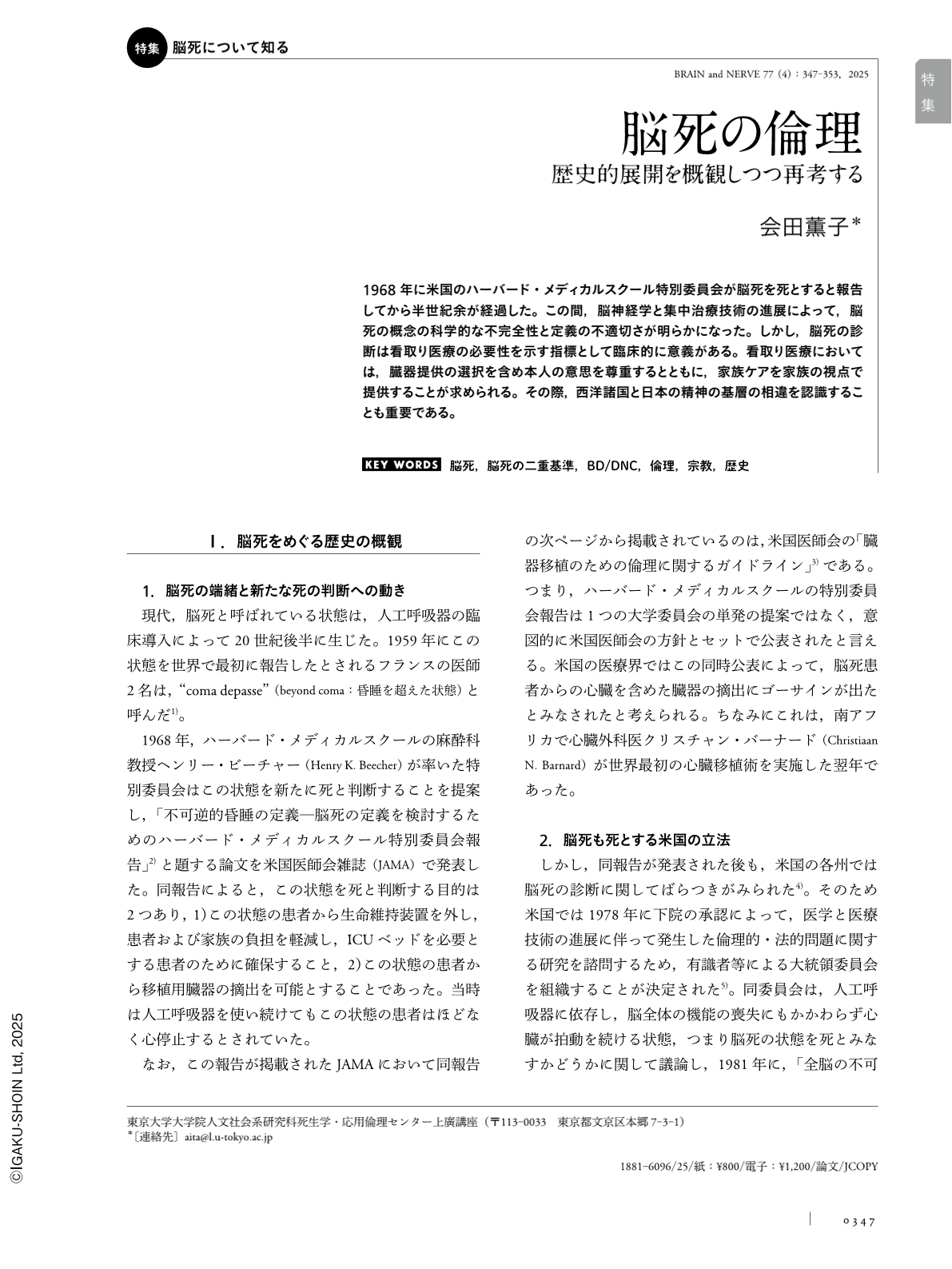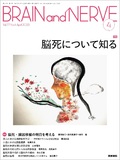Japanese
English
- 有料閲覧
- Abstract 文献概要
- 1ページ目 Look Inside
- 参考文献 Reference
1968年に米国のハーバード・メディカルスクール特別委員会が脳死を死とすると報告してから半世紀余が経過した。この間,脳神経学と集中治療技術の進展によって,脳死の概念の科学的な不完全性と定義の不適切さが明らかになった。しかし,脳死の診断は看取り医療の必要性を示す指標として臨床的に意義がある。看取り医療においては,臓器提供の選択を含め本人の意思を尊重するとともに,家族ケアを家族の視点で提供することが求められる。その際,西洋諸国と日本の精神の基層の相違を認識することも重要である。
Abstract
More than half a century has passed since an ad hoc committee at the Harvard Medical School published its landmark report in 1968, defining brain death as death in the United States. Over this period, advances in neuroscience and intensive care technology have revealed scientific flaws and inappropriate definitions associated with the concept of brain death. Nevertheless, the diagnosis of brain death signifies a poor prognosis and remains clinically significant as an indicator of the need for end-of-life care. In such care, it is essential to respect the individual's wishes, including organ donation, and provide family care from the family's perspective. Thus, it is important to recognize the differences between the foundational spirits of Western countries and those of Japan.

Copyright © 2025, Igaku-Shoin Ltd. All rights reserved.


